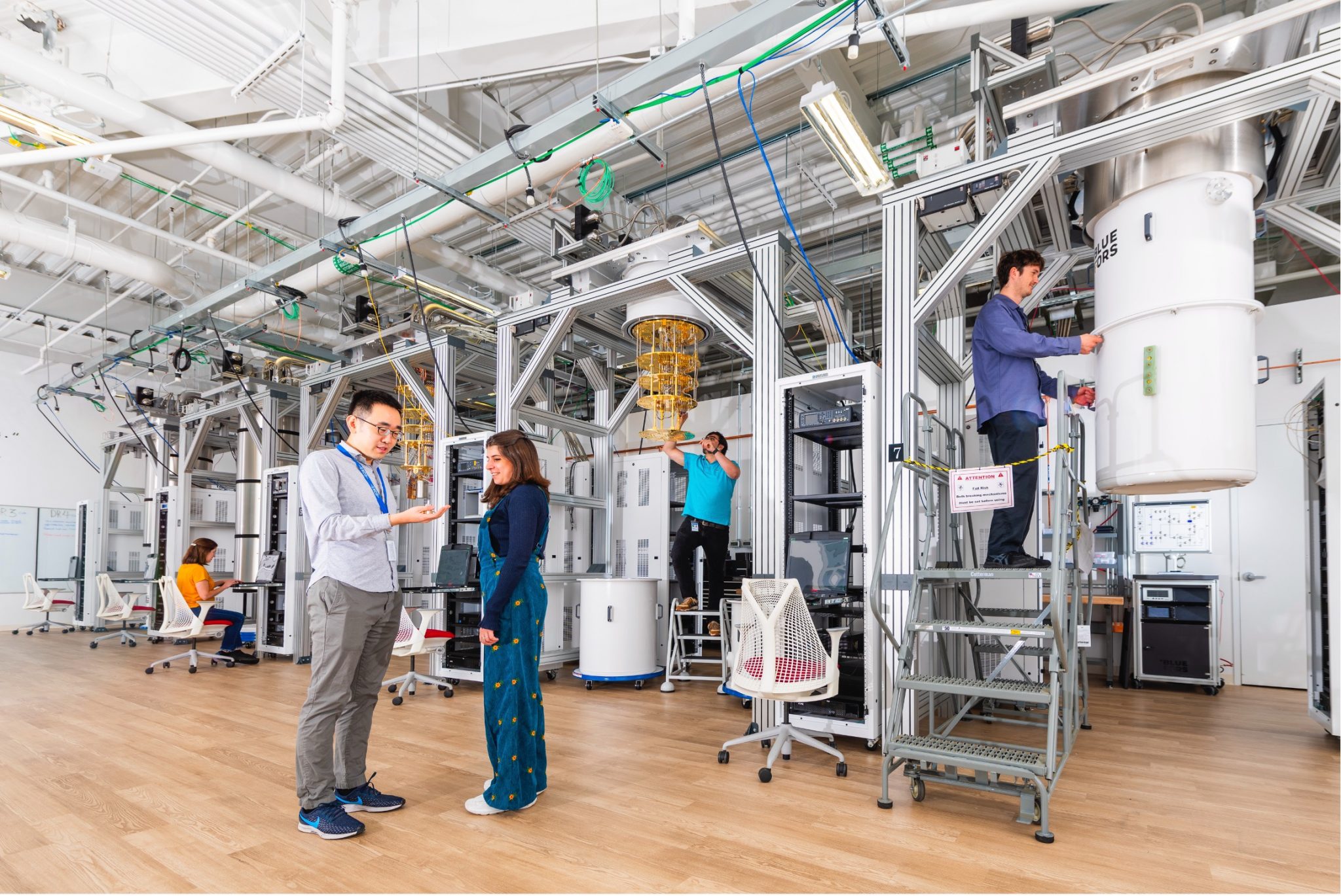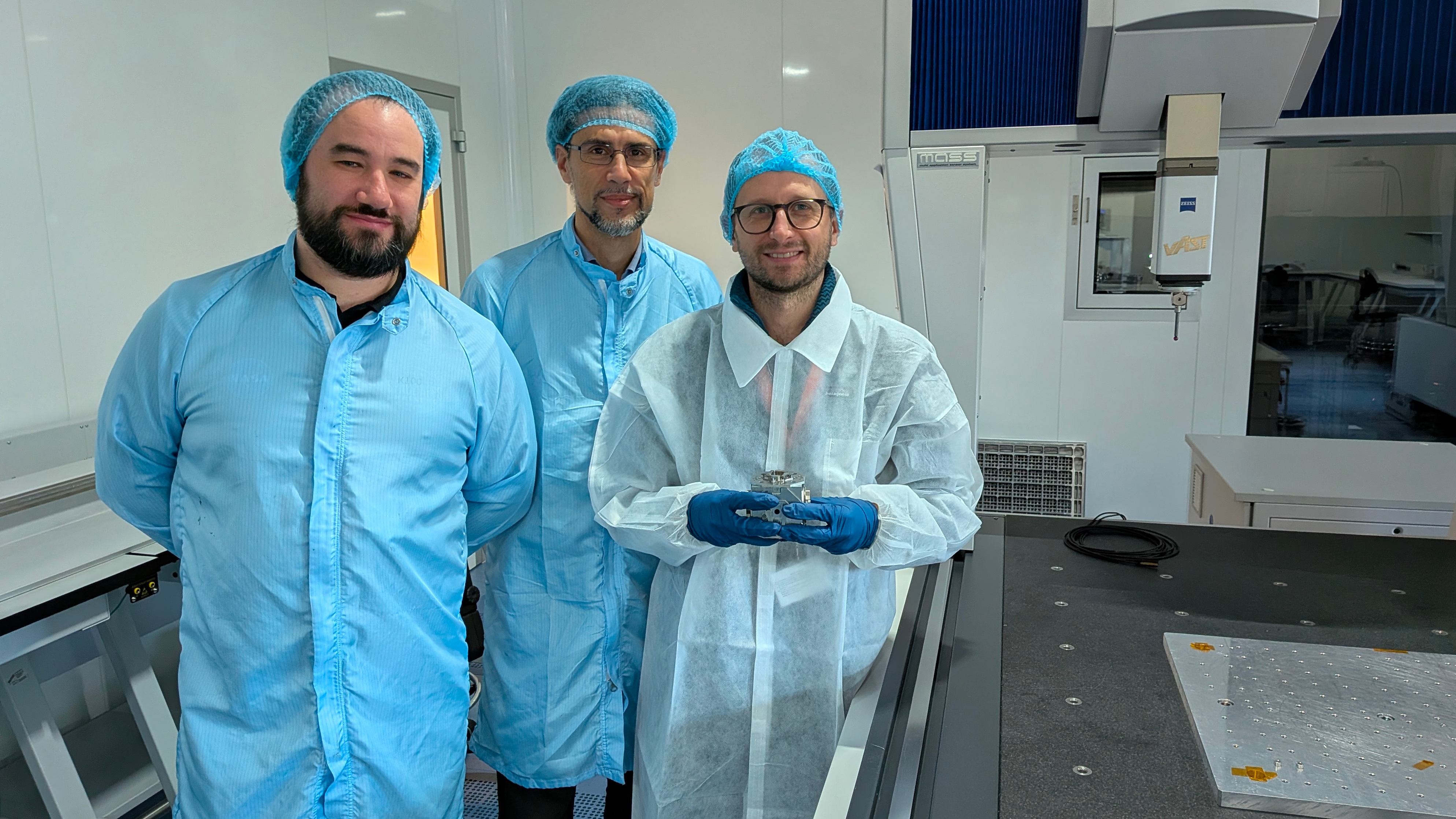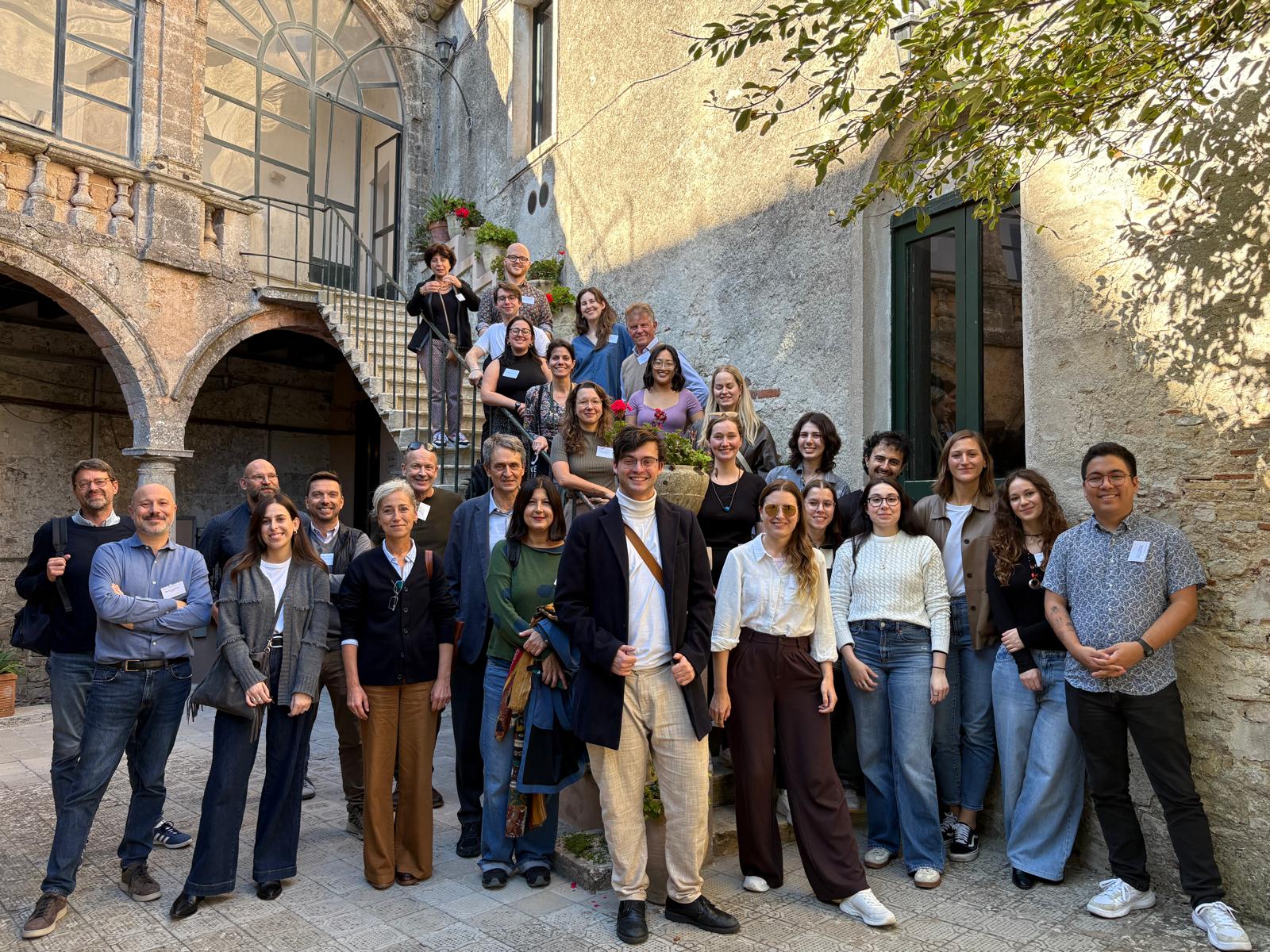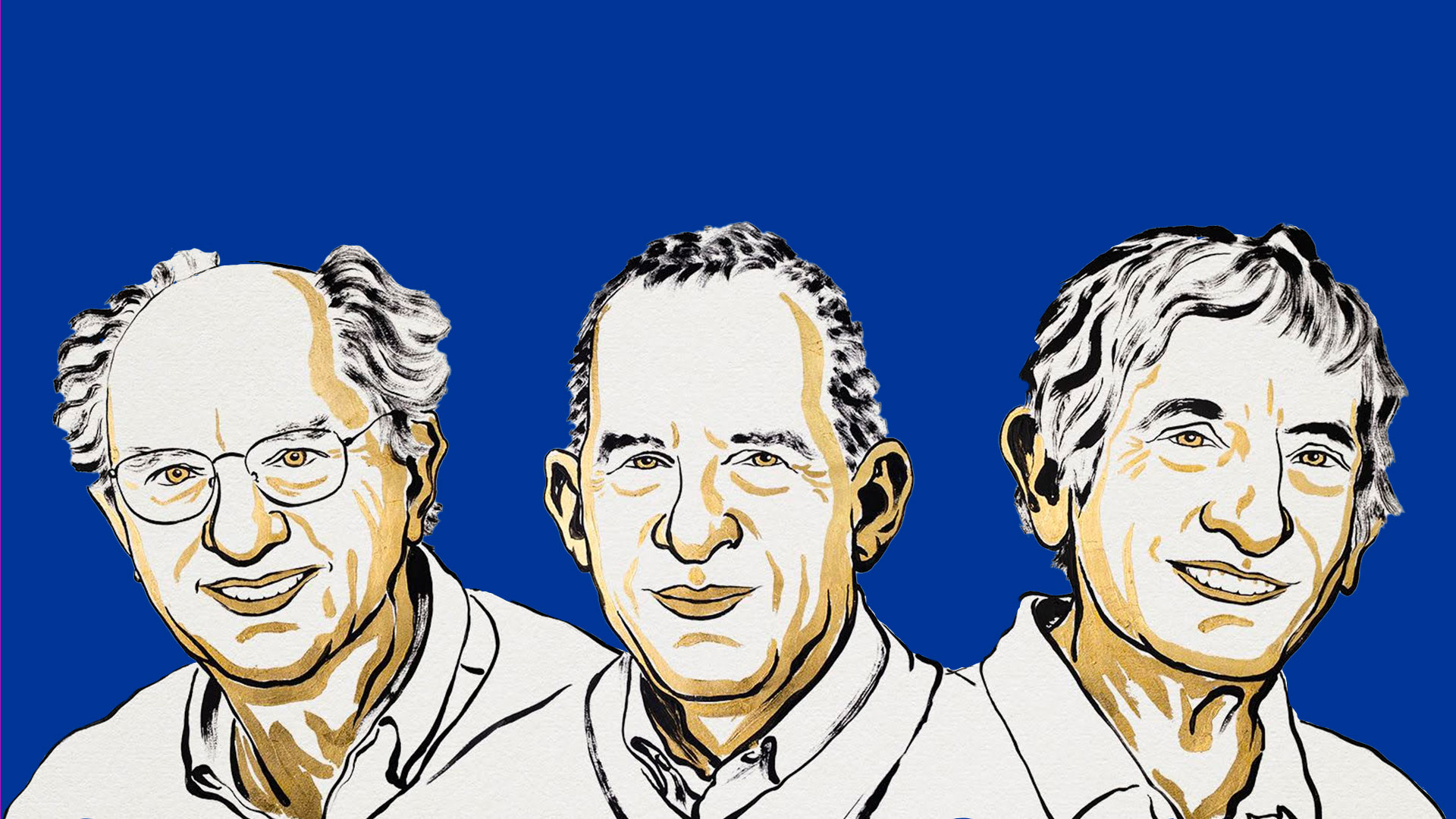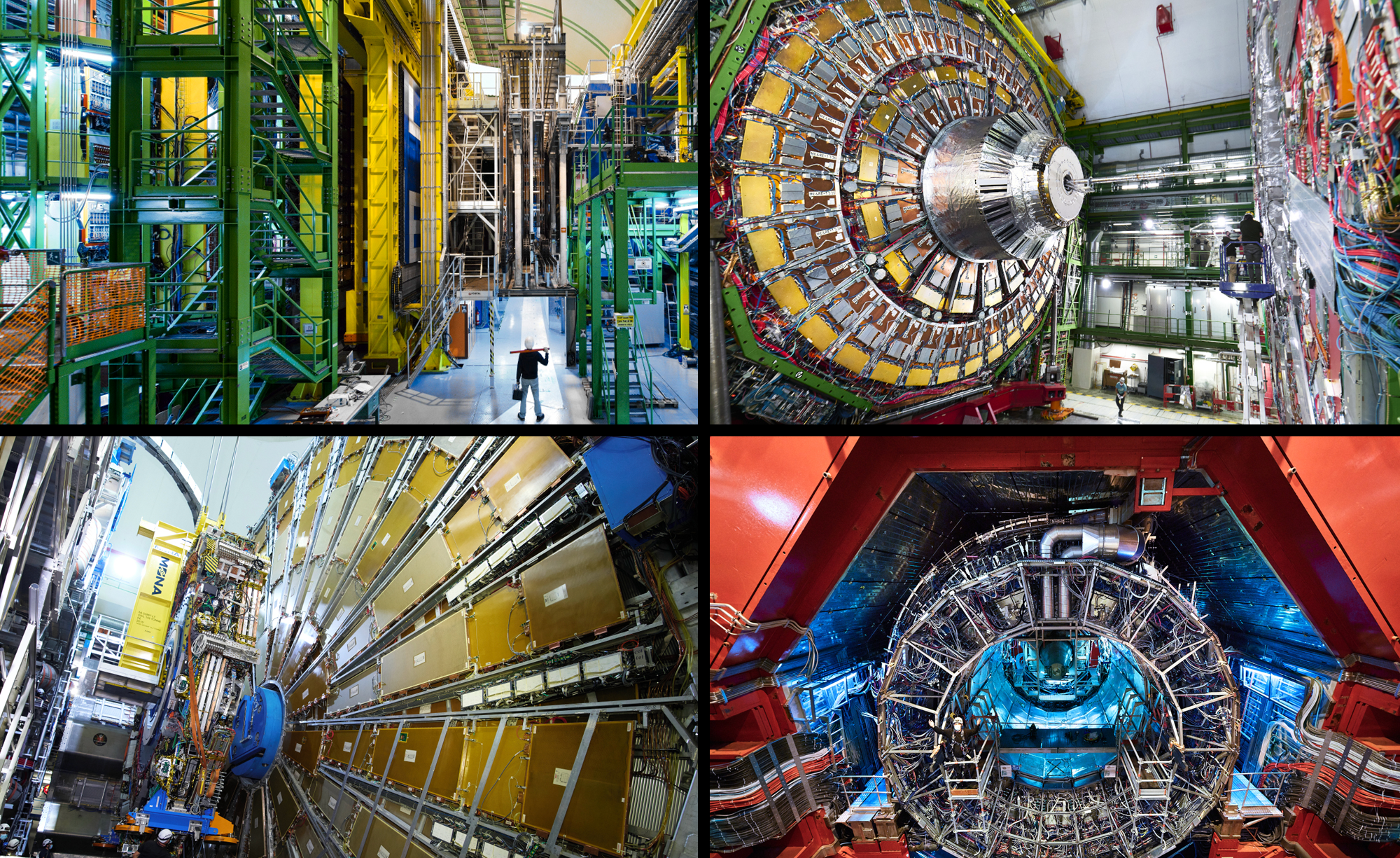The 2025 Breakthrough Prize in Fundamental Physics has been awarded to the scientific collaborations of the ALICE, ATLAS, CMS and LHCb experiments at CERN’s Large Hadron Collider (LHC). The prestigious award was given by the Breakthrough Prize Foundation “for the detailed measurements of the properties of the Higgs boson that confirm the symmetry-breaking mechanism that gives rise to the mass of particles, the discovery of new particles that interact via the strong force, the study of rare processes and matter-antimatter asymmetry, and the exploration of nature at the smallest distances and most extreme conditions at the CERN Large Hadron Collider.” The prize recognises achievements made during LHC Run 2 and was presented to the coordinators of the four major experiments during the award ceremony held in Los Angeles on Saturday, April 5, 2025. The scientific collaborations of the ALICE, ATLAS, CMS and LHCb experiments bring together thousands of researchers from over 70 countries, including Italy, a founding member of CERN and a key contributor to its scientific success, coordinated nationally by INFN (National Institute for Nuclear Physics).
“I’m extremely proud to see the excellent work of the scientific collaborations at the LHC honored with this prize,” said Fabiola Gianotti, CERN Director-General. “Thousands of people at CERN contribute daily to pushing the frontiers of human knowledge, and the Breakthrough Prize in Fundamental Physics highlights CERN’s role as a model of peaceful collaboration in advancing science and technology.”
“Congratulations to the ALICE, ATLAS, CMS and LHCb collaborations: this prestigious international award recognises their tireless and passionate work at the frontiers of science and technology, and the tremendous scientific value of their achievements,” commented Antonio Zoccoli, President of INFN. “As INFN, we are proud to have made substantial contributions to these incredible collective endeavors, and we will continue to support and contribute with our full commitment to future LHC projects and upcoming accelerators, helping shape the future of CERN and particle physics.”
After consulting with the experiment management teams, the Breakthrough Prize Foundation will donate the 3 million dollars award to the CERN & Society Foundation. The prize will fund PhD student fellowships for members of the collaborations, allowing them to spend research periods at CERN and gain hands-on experience at the forefront of science—skills they can bring back to their home countries and regions.
ATLAS and CMS are wide-ranging investigative experiments that explore the full scientific potential of proton and heavy-ion collisions at high energies and intensities at the LHC. They are the two experiments that jointly announced the discovery of the Higgs boson in 2012, and they continue to study its properties today.
“We are happy because this prize recognises a major breakthrough in physics that is often not fully understood: data analysis from Run 2 has radically changed how we understand particle physics,” said Massimo Corradi, INFN researcher and Italy’s national coordinator of ATLAS. “In particular, ATLAS and CMS have ruled out many of the previously favoured theories for explaining the deeper structure behind the Standard Model, such as certain versions of supersymmetry. Now, in this transformed landscape, new theoretical ideas and experimental tests are emerging. This is the result of a titanic effort, which—thanks to the dedication and creativity of thousands of scientists in the two collaborations—has far surpassed initial expectations. INFN played a key role in designing and building the experiments and in collecting and analysing the data. With the upcoming high-luminosity phase of LHC, ATLAS and CMS will have access to twenty times more data than Run 2, pushing the frontiers of knowledge even further,” Corradi concluded.
“This is a recognition of the persistence and dedication needed for scientific progress, which sometimes produces sensational results, but more often is a patient, difficult, and meticulous process,” said Giacomo Sguazzoni, INFN researcher and Italy’s national coordinator of CMS. “All our scientists—especially our Italian colleagues in CMS and the other LHC experiments—know this well and truly deserve this recognition for having contributed over the years to strengthening the discovery of the Higgs boson with exceptional ancillary measurements of no lesser importance,” Sguazzoni added.
ALICE focuses on the quark-gluon plasma, a state of extremely hot and dense matter that existed in the first microseconds after the Big Bang, while LHCb explores the tiny differences between matter and antimatter, the violation of fundamental symmetries, and the complex spectra of hadrons composed of light and heavy quarks.
“This prize is a beautiful recognition for the more than 150 Italian researchers working in the ALICE experiment,” said Federico Antinori, INFN researcher and Italy’s national coordinator of ALICE, who also led the international collaboration from 2017 to 2019. “Over the years, our Italian colleagues have played a central role in all aspects of the experiment: from detector design and construction to data analysis. Their efforts have enabled major progress in understanding the properties of the quark-gluon plasma, the extreme state of matter that filled the early universe just microseconds after the Big Bang,” Antinori concluded.
“Considering that our experiment was originally conceived to operate only during the early phase of LHC, this recognition brings us even greater satisfaction, because LHCb has proven capable of cutting-edge physics across many fields, even at the highest intensities of the accelerator,” said Giovanni Punzi, professor at the University of Pisa, INFN researcher, and Italy’s national coordinator of LHCb. “Over time, the collaboration has grown significantly, also numerically, and in particular the Italian community coordinated by INFN is proud to now represent the largest national component among the 25 participating countries. LHCb is now preparing for a major upgrade to enhance its performance for the next data runs, and we hope this prize is a good omen for what lies ahead,” Punzi added.
“The awarding of the 2025 Breakthrough Prize is a great honor for the LHCb collaboration. It highlights the importance of the numerous measurements carried out by LHCb in flavor physics and hadron spectroscopy, including the exploration of tiny matter-antimatter asymmetries and the discovery of several new heavy-quark hadrons,” commented Vincenzo Vagnoni, INFN researcher and current leader of the entire LHCb international collaboration.
Through these extraordinarily precise measurements, the LHC experiments have pushed the boundaries of fundamental physics to unprecedented levels, and will continue to do so with the next major upgrade, the High-Luminosity LHC, which will boost the collider’s performance starting in 2030, greatly increasing its discovery potential.
